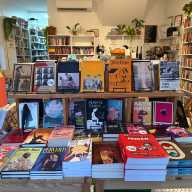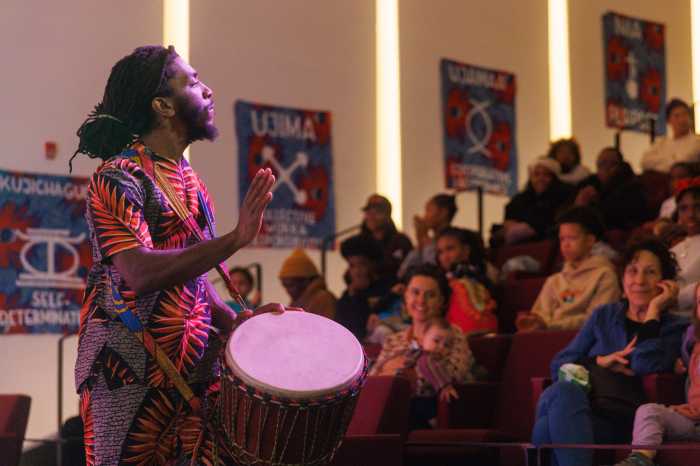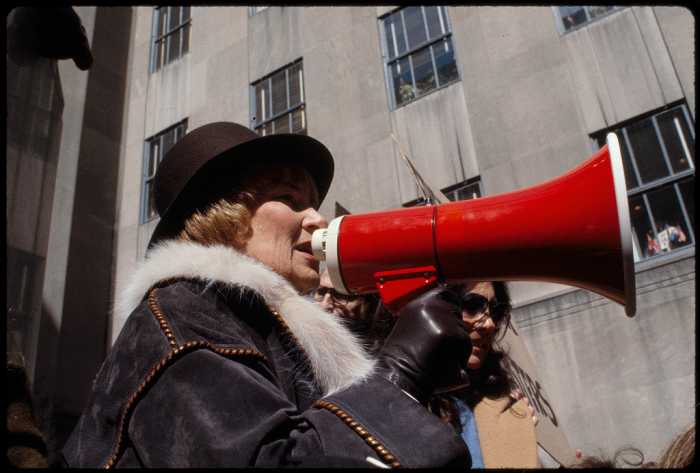Before Londoner Adam Zmith, the author of “Deep Sniff: A History of Poppers and Queer Futures,” changed the spelling of his surname, replacing the “S” with a “Z,” a common response he would get when he introduced himself was, “Like the philosopher?”
Adam Smith, the 18th-century Scottish philosopher, is considered “the father of modern economics,” or sometimes even “the father of capitalism.” Smith’s classic texts, “The Theory of Moral Sentiments” (1759) and “An Inquiry into the Nature and Causes of the Wealth of Nations” (1776), offered nifty concepts such as “the invisible hand,” a metaphor for unintended social benefits that manifest from individuals pursuing their own economic self-interests. Fire burns, and water refreshes; heavy bodies descend, and lighter substances fly upwards, by the necessity of their own nature; nor was the invisible hand of Jupiter ever apprehended to be employed in those matters.
Zmith, too, is interested in elements like vapor, in bodies, substances, and the benefits one can get from a hand. “Deep Sniff” is an exploration of the history of that thing called poppers — scientific name: alkyl nitrites — a sharply scented liquid usually contained in a little, brown-tinted bottle whose vapors some gay men enjoy inhaling during sexual activity to enhance their arousal. Charting a course through science, medicine, industry, and eventually popular culture, Zmith introduces us to a range of characters who, acting at some level on self-interest, contributed to the production of poppers. That includes men in the United Kingdom and the United States such as Thomas Lauder Brunton, the British physician who proposed using amyl nitrite, the active agent in what is today referred to as “poppers,” to treat angina, or chest pain, and the American W. Jay Freezer, a gay man, one of the most successful marketers of poppers for recreational use. Zmith discusses his own personal history with, and fondness for, poppers, at which point the hand turns from invisible to invincible as he recounts his own poppers-enhanced masturbation.
We spoke by Zoom.
Boston: You do a thing I like very much in the book, which is to draw connections between seemingly unrelated occurrences in the same year, or a very tight time frame. For example, you point out that the year 1976 is significant in the chronology of the poppers industry for all sorts of developments, as well as important in your own personal history because your parents were married in that year. Right there, you’ve fulfilled your promise in the subtitle of relating history to a queer future. In that spirit, I ask you: the year 2020 was when Adam Zmith wrote “Deep Sniff: A History of Poppers and Queer Futures.” What did your world look like at that time and what impact did it have on the writing of this book?
Zmith: Oh, God, a pandemic! A dirty panty day! Absolute shit show! Okay, 2020. In the spring, just as we were in the first lockdown here in the UK, I decided to transform a talk I had delivered the previous year into a book proposal. I sent it out and got the book contract. I wrote the book from June until December during one version of lockdown or another. I was in a relationship that ended during that period, so I was in and out of having sex with other people. I was finding pleasure online with porn, and sniffing poppers were a part of that experience. But, I was doing a bunch of other things virtually as well: watching films and reading books and discussing them with my flatmates, and listening to a lot of music. How did this impact the book? All of it did. In terms of the music, in the back of the book there’s a QR code to a playlist on Spotify. Some of those songs are there because they are about poppers or somehow connected to poppers. But others are included because they were the music that I was listening to while I was writing.
Boston: Much of this book is about science — people’s trust or distrust in science — and how science can and does get politicized.
Zmith: I think about the moralism surrounding HIV/AIDS. In the late eighties, there was so much moralizing in the press, politics, and even medicine about gay sex causing AIDS. And then when society accepted that it was caused by a virus, HIV, the response was still that, well, gay sex facilitates its spread and therefore should be stopped or curbed in some way. And, that obviously had a huge impact on the way that gay men had sex. Or didn’t. Poppers were a part of this debate because poppers were fingered as a potential cause of HIV/AIDS, as a facilitator for the transmission of the virus.
Boston: What was your first encounter with poppers?
Zmith: The first time I encountered poppers was when I was 29 and went for a hookup with someone. I turned up at his house and he said, “Oh, what do you think about inviting this other person as well? Here’s a picture,” and I said, “Yeah, that sounds good.” So, the other guy came over and brought the poppers. I didn’t know what it was. I was still relatively new to sex. They took it, but I didn’t. And then I must have bought some for myself and started to use it with myself. It is quite common that I try things with myself first, sexual or otherwise. I’m an independent person and I have quite a strong sexual relationship with myself. There was one time, which I mention in the book, when it was a New Year’s Eve and I was at home, watching porn, sniffing poppers and wanking while the fireworks were going off outside. So, that was when I really grasped that this was a drug that really worked for me.
Boston: Some people might have discomfort around this idea of poppers as drug use. How do you deal with the stigma attached to what you’ve written about in this book, especially your own involvement in it?
Zmith: Well, I guess I accept that the book is not going to be promoted heavily by bookshops in Saudi Arabia. How do I deal with stigma? I thought a lot about how open to be when I was writing the book. For instance, I debated whether to include a chapter about popperbator porn, which I use. I decided if I’m going to include this, I can’t write about it dispassionately because I’m a practitioner of it. It gives me energy as a writer. I had sex for the first time, and then came out, at 29. That changed my whole relationship with the world. Up until that point, my sexuality, and to some extent my gender identity, was a secret to other people. I had not let anybody in. I suppose I was dealing with some deep shame and stigma within myself, but it was more a question of self-discovery. All the while, I had been thinking, reading, and absorbing so much information about gender and sexuality, everything from bell hooks to Odo in “Star Trek: Deep Space Nine.” Added to that, when I was at school, it was literally illegal for teachers to talk about homosexuality in schools [Section 28]. I don’t know how well-known that is in the U.S., that we had this law in this country until 2003. So, I made the flip from closed to open once I not only felt comfortable within myself, but also educated about queer and straight directions in history, politics, science, popular culture.
Boston: You explain how amyl nitrite got marketed to gay men, leading to the creation of a sexual culture around poppers. Did you find evidence of other groups of people developing any kind of culture involving poppers?
Zmith: There is no group or subculture that comes close to people who identify as gay men in using poppers. I am aware that in the late 1980s and early ‘90s in the UK poppers were really big in the rave scene. If you ask people today what drug was associated with raves in that period, the most common answer would be ecstasy, which is completely true, but I discovered through writing the book that poppers were also fairly prevalent. And that was a multi-gender, presumptively straight scene. Going back much earlier in the century, there are pharmacological references to amyl nitrite alleviating menstrual pain. More anecdotally, I’ve spoken to lesbians and straight women who have done poppers recreationally. One of the reasons poppers became so prevalent among gay men is that its use was connected to spaces, and because gay men created specific spaces that are just about sex, whether in pairs or multiples, like saunas and sex clubs, it contributed to a group identity.
Boston: Speaking anecdotally again, I have a friend in the UK who told me he kept meeting African men, immigrants, who were averse to poppers, which is thought-provoking on many levels. Did race factor into your research, not in terms of you going out and looking for it necessarily, but did it arise in any noteworthy way in the records you consulted or interviews you conducted?
Zmith: The history of poppers is very white, everything from the first people to discover and develop it, to the manufacturers and business owners who shaped the industry, to the gay press that advertised and publicized it, including the images of the men in the advertisements. It’s a very white picture. So, the only way, I would say, that race arose is as whiteness — whiteness being palpably present and completely absent at the same time. I don’t know about the people that you’re talking about, the migrants to the UK from African countries specifically. You used the word “aversion,” and I don’t know how much an attitude such as aversion to poppers is a cultural thing like, “That’s what white gay people do,” and how much it is an individual thing.
Boston: Public health research has shown that in a lot of urban gay male communities, the pursuit of sexual pleasure is often linked to addictions and substance abuse. As much as you wanted to privilege gay pleasure-seeking, was there also concern about harm reduction in your writing?
Zmith: When I was writing the book, I was concerned about harm reduction, and it wasn’t a harm that comes from drugs. It’s a harm that comes from stigma itself and the denial of pleasure that an individual might do to themselves, or the society might do to that individual. That, to me, is a bigger harm at the level of a society than any harm that I’ve heard about or read about that can come from poppers. This book is not about correcting the public record of harms versus benefits of poppers. It’s about correcting the harm that’s caused people by disallowing them from thinking fully and freely about their own pleasure. That was the bigger harm that I was trying to reduce. I took that on rather than trying to battle any particular sensationalist headline that comes up every six months that “Eighteen-year-old drank a bottle of poppers and died.” That’s not the level on which I’m motivated to enter the debate, or even create a debate.
Deep Sniff: A History of Poppers and Queer Futures (Repeater Books) | Adam Zmith | 201 pages | repeaterbooks.com



































